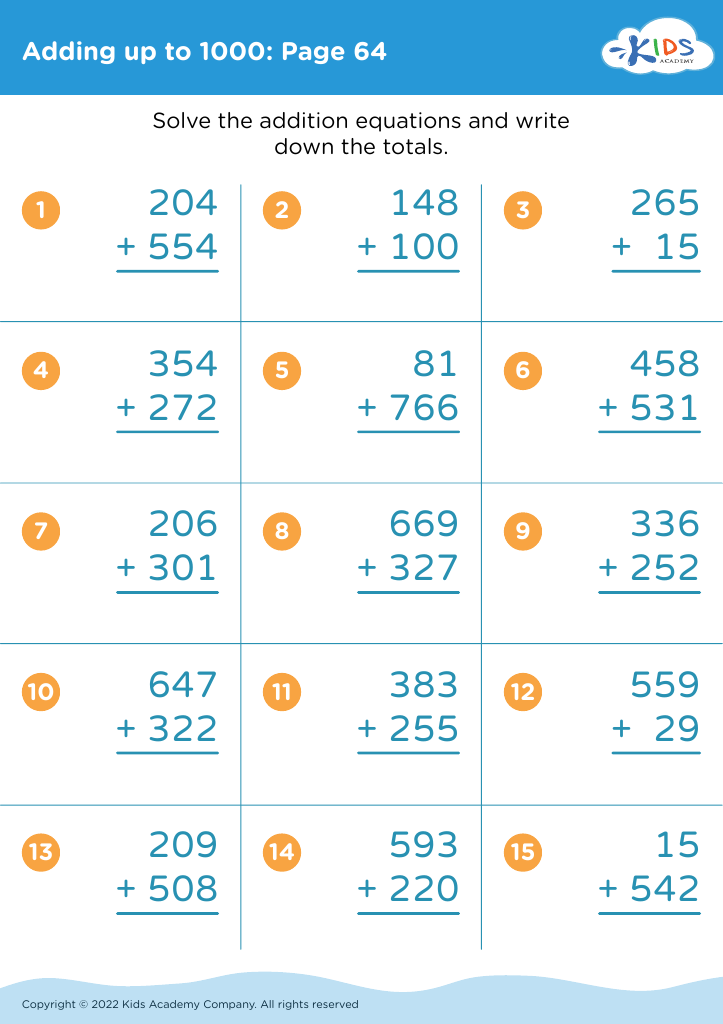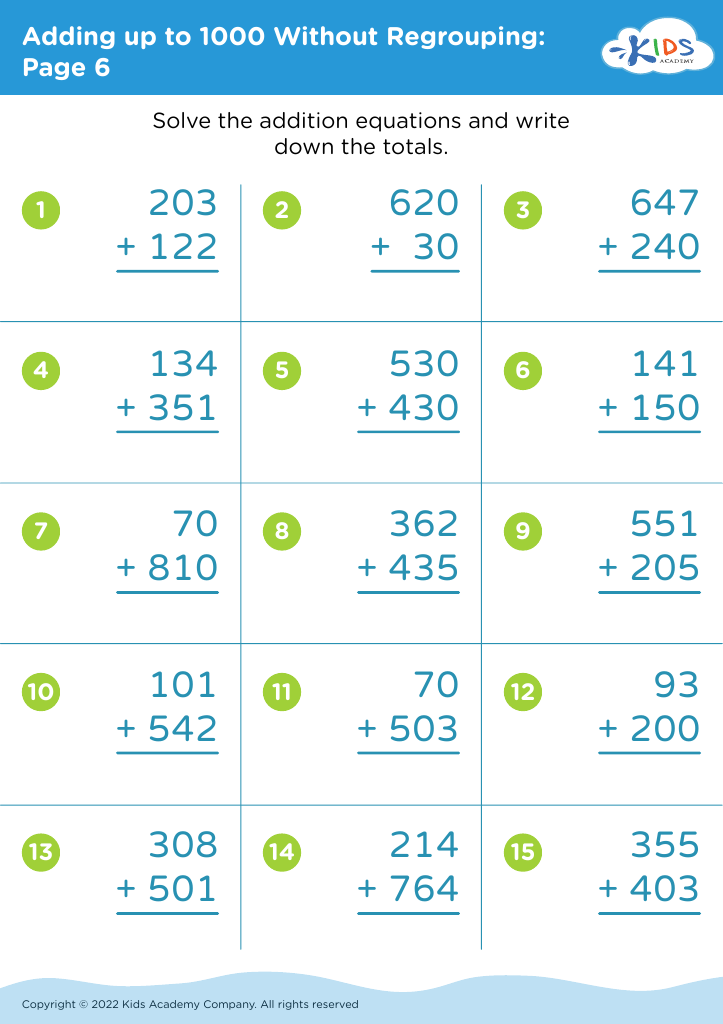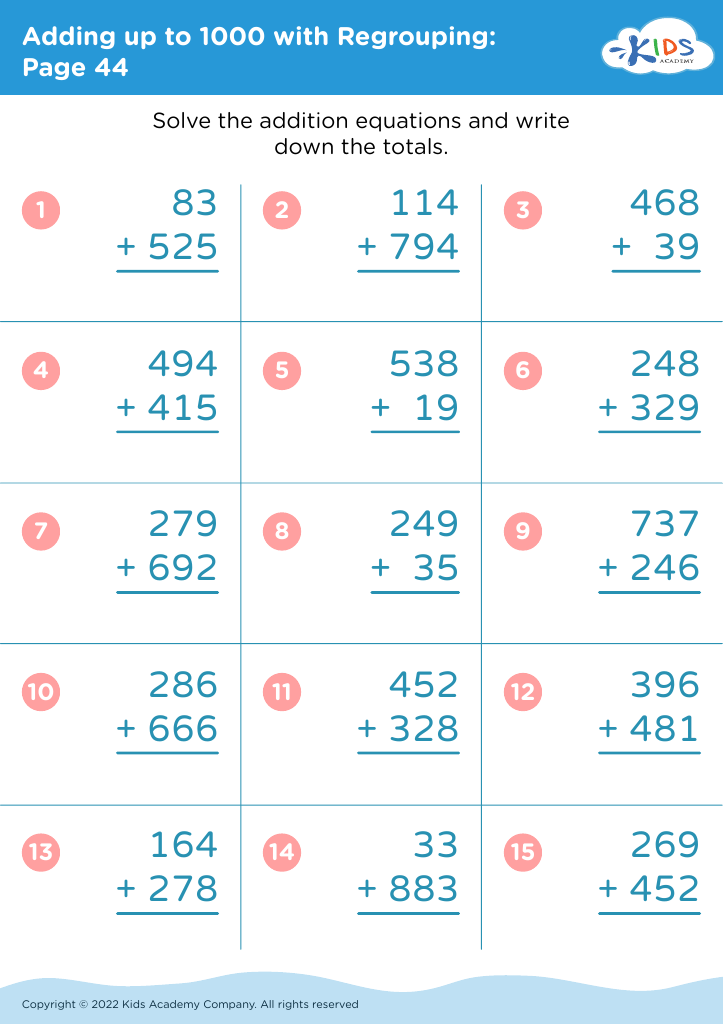Understanding sequencing Adding up to 1000 Worksheets for Ages 3-7
3 filtered results
-
From - To
Enhance your child's math skills with our "Understanding Sequencing: Adding up to 1000 Worksheets for Ages 3-7." These engaging worksheets will guide young learners through the foundational math concept of sequencing, essential for building numerical fluency. Perfectly tailored to ages 3-7, our worksheets provide fun, interactive exercises to help children grasp counting in order, recognizing patterns, and making logical connections. Adding up to 1,000 has never been easier or more enjoyable. Let Kids Academy support your child's early math journey, setting a strong foundation for future learning. Visit our page for these invaluable resources and watch your child’s confidence soar!
Understanding sequencing and adding up to 1000 are essential early math skills that lay the foundation for more complex mathematical concepts. For ages 3-7, grasping sequencing helps children recognize patterns, order events, and follow logical steps—skills crucial not just in math, but in everyday decision-making and problem-solving. Moreover, sequencing enhances their cognitive development and organizational skills, setting a robust groundwork for reading comprehension and narrative skills.
Learning to add up to 1000 at an early age familiarizes children with large numbers, building their confidence and competence with arithmetic operations. This early exposure demystifies larger numbers, fostering a stronger number sense, which is a predictor of later math achievement. Proficiency in addition also aids in understanding more complex operations like subtraction, multiplication, and division.
For parents and teachers, emphasizing these skills ensures children are on track academically, boosting their enthusiasm and confidence in learning. Early mastery can alleviate future math anxiety and foster a lifelong appreciation and curiosity for numbers. By caring about these foundational skills, adults are not just teaching math; they’re nurturing critical thinking, problem-solving abilities, and an organized way of understanding the world. In summary, these skills are cornerstones for academic success and practical life applications.



















